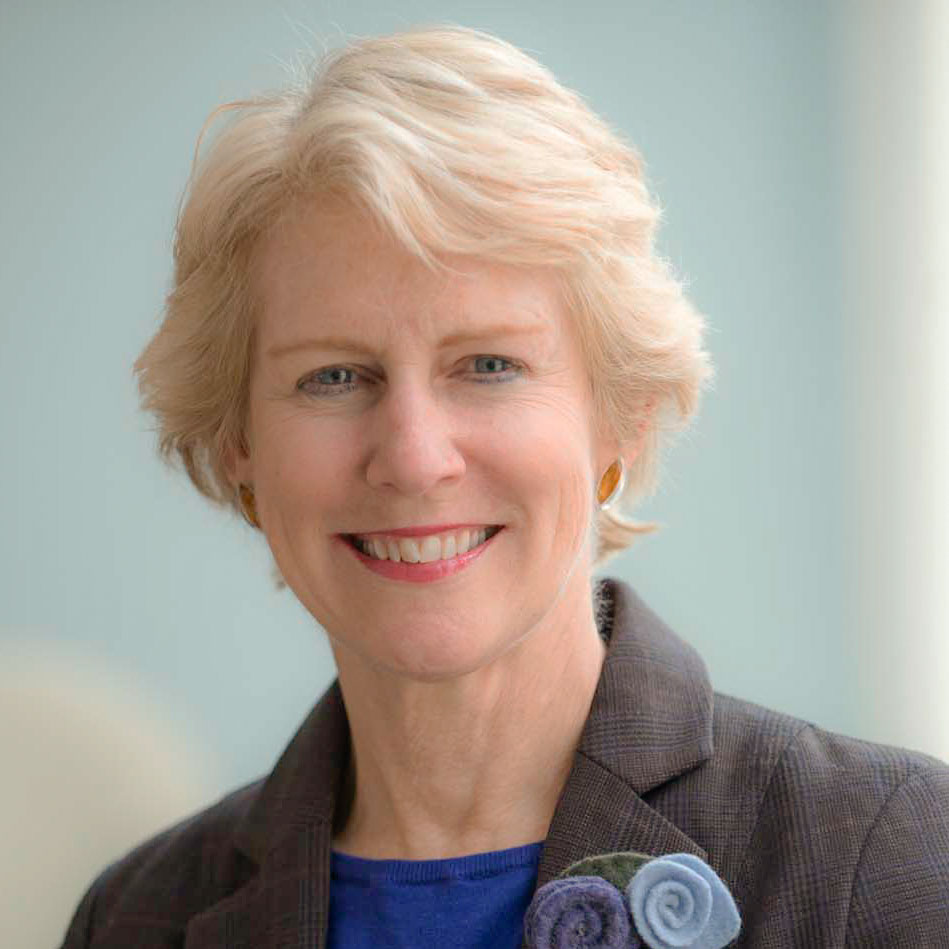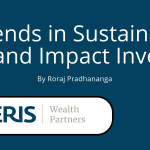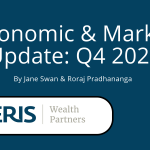Ellen Remmer: An Inspiring Journey About Impact Investing and Empowering Women
By Anders Ferguson, Partner
Ellen Remmer’s journey from enlightened philanthropist to impact investor is a story that can inspire all of us.
 Ellen grew up in a philanthropically engaged family that established a family foundation in 1990. Over the course of the past 30 years, Ellen’s vision has steadily evolved, and today she is a champion of impact investing and the opportunities to align her wealth and her values.
Ellen grew up in a philanthropically engaged family that established a family foundation in 1990. Over the course of the past 30 years, Ellen’s vision has steadily evolved, and today she is a champion of impact investing and the opportunities to align her wealth and her values.
Recently, her mission has focused on helping women take control of their assets and invest with greater purpose and impact. Her vision manifested in a new nonprofit initiative, Invest for Better, which launched in January.
Last month, I sat down with Ellen to discuss her life’s journey. I wanted to share her experience because it speaks to the potential of investing capital to achieve both social benefit and financial gain. It’s also instructive in describing how investors can change their mind about the role and possibilities of wealth.
Developing Consciousness
Influenced by her family’s focus on the greater good through its foundation, Ellen began her career in 1990 as an advisor to philanthropic families and organizations. She primarily served families of significant wealth who wanted to be more effective donors to create positive change.
In 2000, Ellen attended a Council on Foundations meeting in NYC, where she heard a representative from the Jessie Smith Noyes Foundation talk about the idea of Mission-Related Investing. At that point, a lightbulb went off. Ellen realized that foundations can use their endowments’ capital to further their goals – a grant and invest.
This was a transformative moment for Ellen, who had always advised families to “give away” money to accomplish their mission. Ellen’s epiphany, however, was still ahead of its time. Her vision had only tepid support from advisors and co-trustees. The objections were similar to those we still hear today. “It won’t work.” “We’ll lose money.” “Not fiduciarily responsible.”
Education Is Key
Undaunted, Ellen kept pushing. In 2007, she was appointed to lead The Philanthropic Initiative(TPI), a philanthropic advisory practice for individuals, families, foundations, and businesses. In that new role, her thinking evolved further. She was responsible for identifying critical issues and trends in the field and translating them into practical advice for philanthropic clients.
The challenge was how to present the notion of impact investing to families and demonstrate fiduciary responsibility at the same time. She knew the task at hand was to educate and help investors think in new ways.
TPI worked with a number of partners to help clients assess opportunities for Mission-Related Investing. They also facilitated an initiative to help community foundations offer impact investing to their donors.
After years of advising families and watching others struggle forward, Ellen felt she had not made the big step in transforming her wealth and portfolio. As Ellen told us, “I simply was not practicing what I was preaching.”
As she became comfortable with the benefits of impact investing, she reflected on the advice she had been receiving from her advisors. It was clear most weren’t aware that wealth could be aligned with values and that a rigorous investment approach could achieve meaningful financial results andsocial benefit for clients. As Ellen noted, it’s easy to simply “follow the recommendations of your advisor.”
Ellen responded by giving her advisor an ultimatum: Could the advisor’s team meet her needs as an impact investor? It quickly became evident the advisor couldn’t, and that’s when we welcomed her to Veris.
A Different Way
As an impact investor with Veris, we have helped Ellen seek market-rate returns that proved the skeptics in her family wrong. She learned that impact investing was a sound and viable approach to creating social benefit and financial gain.
Working through her foundation, she then moved to higher-impact investments, which not only accomplished her financial objectives, but also brought Ellen personal joy. Her son joined her family’s foundation board. He was very interested in impact investing and helped bring along the rest of the family.
Always advancing, Ellen wrote the TPI Guide to Impact Investing, which furthered her thinking about women and impact investing. She understood that women, in particular, have a special interest in impact investing, but often fail to translate their intent into action.
Invest for Better
So, Ellen got determined to help women invest with impact. Her goals were to educate and empower women about impacting investing, while demystifying the process.
All of this work has culminated in her current project, Invest For Better, a nonprofit campaign whose collaborators include TPI, Mission Throttle, Mission Investors Exchange, The Case Foundation, among others.
Ellen believes more women should be engaged in impact investing than they are today, but says there are three “gaps” that prevent more women from doing so.
The first is the aspiration gap – the disconnect between interest and action among women. Second is the application gap – having the time and confidence to invest with impact. Third is the support gap – having advisors and peers to discuss impact investing.
Like all of Ellen’s work, she has put her heart, soul and keen intellect into her new project. The team at Veris believes this well-timed initiative will play a vital role in motivating women to embrace impact investing.
More than anything, Ellen is one of those courageous leaders whose passion, energy and vision will continue to inspire us all.
Thank you, Ellen.









